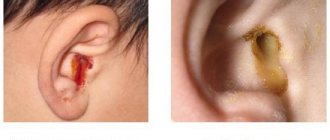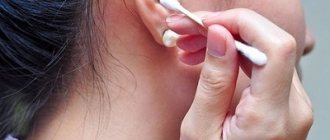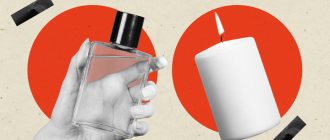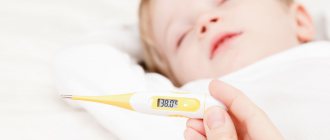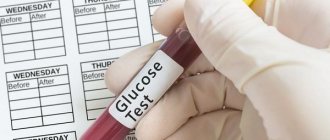The ability to hear is a very important human ability, thanks to which it becomes possible to contact the outside world, perceive external sounds, and communicate with other people. Impaired hearing leads to a deterioration in the quality of life. A decrease in the acuity of perception causes absent-mindedness, weakened thinking, and learning difficulties. And the mere fact that when communicating with other people you have to constantly ask again does not increase self-confidence.
In medicine, there is a diagnosis that characterizes such a condition as hearing loss in adults - hearing loss. The degree of hearing loss (decreased hearing ability) can vary from partial hearing impairment to complete deafness.
According to statistics, more than ten million Russian citizens suffer from hearing loss or hearing loss, including about one million minors.
This pathology occurs even in newborn babies. If a decrease in hearing sensitivity occurred during the mother’s pregnancy or during the first year of life, restoring hearing will be very difficult, since babies have not yet heard sounds and speech.
Maintaining 100% hearing is not an easy task. If you feel that your hearing is deteriorating, immediately contact an otolaryngologist.
Obstructive wax plugs
This is perhaps the safest cause of hearing loss.
As a rule, sulfur can lead to a sharp decrease in hearing in one or two ears after contact with water. As a result, the sulfur masses swell and completely block the external auditory canal.
In this situation, in addition to a sharp decrease in hearing, pain in the ear may occur. It is necessary to contact an ENT doctor as soon as possible, since delay can lead to the development of inflammation, namely external otitis.
Treatment
During the examination, the ENT doctor will immediately determine the presence of sulfur plugs, remove them, and hearing will be instantly restored.
How does hearing restoration occur?
To begin treatment, you need to know the degree of hearing loss. Hearing testing is carried out using speech or pure-tone audiometry. Pure-tone audiometry is carried out using a special device with headphones and a button intended for the patient. The subject's headphones alternately play sounds of varying volumes. If the patient hears a sound, he must press the button. The result of the study is an audiogram - a graph that allows the doctor to make a conclusion about the degree of hearing.
Having determined the degree of hearing impairment, the doctor creates an effective treatment regimen. Treatment may consist of taking medications. Often hearing loss occurs as a result of edema. In this case, the specialist prescribes medications to the patient that promote vasoconstriction. If hearing has become worse as a result of an infectious disease, antimicrobial agents are prescribed. In addition to the main therapy, vitamin preparations and complexes can be prescribed.
Physiotherapy is a common method of treating ear diseases. Warming up, UVK, compresses and magnetic therapy - all this helps restore hearing, but you should not visit a physiotherapy room without a doctor’s prescription.
Hearing loss can also be corrected with hearing aids. Our clinic specialists will help you choose the right hearing aid so that you can once again enjoy the full range of existing sounds. We will be happy to help you!
Eardrum injury
There can be several causes of injury:
- blow to the ear area;
- perforation of the membrane by foreign objects (a cotton swab, a hairpin, a match, the core of a pen and other objects that are so convenient for scratching the ears);
- falling from a height, including into water;
- injury due to a sudden change in atmospheric pressure.
Treatment
During the examination, the ENT doctor will determine the fact of perforation of the eardrum, perform audiometry to exclude the development of auditory neuritis due to injury, and develop a plan for further action. In most cases, the tactic is wait-and-see. The membrane may close on its own. It is imperative to protect the ear from water and avoid air travel.
A month later, if the integrity of the eardrum has not been restored, the issue of myringoplasty (closing the defect of the eardrum surgically) is considered.
Treatment
Since there are many reasons leading to hearing loss, treatment in each specific case is selected individually after determining the correct diagnosis.
The use of drugs is indicated in the presence of inflammatory diseases. In this case, antiviral or antibacterial drugs are prescribed. If exposed to allergens, use antihistamines.
Physiotherapeutic procedures have proven themselves well in the treatment of hearing loss.
The use of such physiotherapeutic devices for the treatment of conductive, sensorineural and mixed hearing loss as Transair-07 and Auditon provide truly excellent results! The impact of microcurrent electrical pulses in combination with infrared laser radiation and vibroacoustic effects effectively affects the functioning of the ear, stimulating the hair cells of the auditory nerve.
In some cases, for example with otosclerosis, it is only possible to restore at least one percent of hearing through surgery.
If, despite medical procedures and manipulations, sound perception continues to suffer and rapidly decline, in order not to completely lose hearing, hearing aids and cochlear implants are used for children under 3 years of age.
Otitis externa
With this disease, the passage of air and sound to the eardrum at the level of the outer ear is blocked. Otitis externa can occur against the background of trauma to the skin of the ear canal, long-standing cerumen plug, or the presence of fungal and epithelial masses. The course of the disease is aggravated by concomitant pathologies, for example, diabetes mellitus. In this case, desquamation of the epithelium occurs (skin sloughing at the site of inflammation), inflammatory swelling of the skin occurs, and purulent discharge may appear. As a rule, with this condition, not only hearing loss occurs, but also pain, itching, increased body temperature, weakness, and headache.
Treatment
Treatment tactics depend on each specific situation. After the inflammation is eliminated, hearing is completely restored.
Main symptoms of the disorder
Sometimes adults experience acute hearing loss. In this case, the ear seems to be “stuck,” which is accompanied by almost complete deafness. These symptoms develop during the first 24 hours. Another sign is tinnitus. In this case, patients, as a rule, do not experience pain. The most common signs of a disorder:
- significant deterioration or even complete loss of hearing;
- acute hearing loss (only from one ear, less often from both);
- acute hearing loss (literally within a day);
- noise, ringing in the ears of varying intensity;
- feeling of increased pressure in the ear canal;
- less often – dizziness.
Tubootitis
It is characterized by retraction of the eardrum due to a number of reasons:
- a sudden change in atmospheric pressure (for example, during takeoff or landing of an airplane, ascent on a high-speed elevator, diving under water);
- swelling in the nasal cavity due to inflammation or a vascular reaction to changes in blood pressure.
In this condition, the patient may hear a crackling sound in the ears or rustling noise when yawning or swallowing.
If your hearing does not recover on its own, you should contact an ENT doctor.
Treatment
After examination and additional examination, the doctor can perform a number of procedures to restore hearing: blowing the auditory tubes according to Politzer; pneumomassage of the eardrums; will prescribe gymnastics for the auditory tubes and, if necessary, medications. For people who often encounter this problem during air travel, we recommend using a vasoconstrictor spray in the nose 10 minutes before takeoff and 10 minutes before landing (if there are no contraindications).
Exercise therapy for hearing loss
Special exercises also have a beneficial effect on the hearing aid. Here are a few of the most effective.
Talk on the phone on speakerphone while playing music at the same time. Try not to raise your voice. If you can communicate with your interlocutor in this way without any problems, add another noise source. For example, turn on the TV. Such training will help you isolate from the general flow of sounds the one that interests you.
Ask someone in your household to make a loud sound (whistle, snap your fingers, knock, etc.). Then close your eyes and ask your assistant to move to any corner of the room at his discretion to reproduce the same noise there. Your task is to guess where the sound is coming from. This will help sharpen your hearing acuity and improve spatial orientation skills.
Sit in a chair and close your eyes. Within a few seconds, record any sounds you hear. Then remember and say to yourself the source of each noise. The bigger, the better. This is necessary to establish a stable relationship between the brain and the hearing organs.
It is also useful to massage the ear area to improve blood microcirculation. For example, rub your ears with open palms in a clockwise circular motion. Or squeeze your ears with your palms, creating noticeable pressure, and then suddenly remove your hands (and so on several times). Another simple exercise is to pull your earlobes down, then press them upward with your fingers.
Acute serous otitis media
This causes fluid to accumulate in the tympanic cavity (behind the eardrum). A person hears “as if through water.”
The cause of the occurrence is a long course of tubo-otitis.
Treatment
During the examination, the ENT doctor will see the clinical manifestations characteristic of this condition and, if necessary, will conduct further examination. To restore hearing, blowing of the auditory tubes according to Politzer is used; pneumomassage of the eardrums; gymnastics for the auditory tubes is prescribed; catheterization of the auditory tubes and, if necessary; medications. More serious treatment may be required, including hospitalization in the ENT department.
Treatment of hearing loss in the elderly with folk remedies
When talking about how to improve hearing in old age, we cannot ignore alternative medicine. Of course, it is impossible to completely restore hearing even with a mild stage of hearing loss using traditional methods. Their use is justified only as aids to support the body and after mandatory consultation with a doctor.
Among the plants that have a positive effect on the hearing organs are red clover, eleutherococcus, sage, dill, rose hips, horsetail, immortelle, and licorice.
Eleutherococcus senticosus deserves special attention, as it has a beneficial effect on all systems that ensure optimal functioning of the hearing organs: nervous, circulatory, and immune. You can take it either as a tincture or in a more convenient tablet form.
Acute purulent otitis media
It can be an independent disease or, more often, a complication of acute purulent rhinitis. Acute purulent otitis media is characterized by pain in the ear, including throbbing pain, fever, and headache.
Treatment
Upon examination, the ENT doctor will make a diagnosis and prescribe local or systemic antibacterial therapy, anti-inflammatory treatment, and, if necessary, hospitalization. After relief of inflammation, as a rule, hearing is completely restored.
Description and types of violation
Hearing loss can be caused by different organs. Depending on this, several types of pathology are distinguished:
- Conductive loss occurs due to problems with the ear canal, middle ear, or eardrum. This is often associated with otitis media, hearing defects, infections, and water accumulation in the ear.
- Sensory neural loss is caused by problems related to the inner ear. Often the disorder is associated with exposure to loud sounds, head trauma, viral infection, developmental defects, and the appearance of tumors.
- Mixed - in this case, hearing problems are associated with both conductive and sensorineural loss.
Acute sensorineural hearing loss
This is the most insidious disease listed. Hearing in one or both ears decreases or suddenly disappears. There may be noise in the ear, ringing, and decreased speech intelligibility.
There may be several reasons for this disease. It occurs at any age and, at first glance, against the background of complete health. It occurs as a consequence of acute infectious processes, in particular influenza, chickenpox, infectious meningitis and other viral infections. It may be the result of a circulatory disorder in the vessels of the brain, for example, with a change in blood pressure, severe osteochondrosis of the cervical spine, or with a stroke.
It can also be a symptom of tumor processes in the brain, a manifestation of multiple sclerosis.
Alarm bell: what indicates hearing loss
Hearing loss
It’s worth taking care of your hearing if:
- you find yourself unable to hear your watch ticking,
- you want to increase the volume of the TV or radio,
- it is difficult for you to carry on a conversation when several people are talking at once,
- it seems to you that women speak less clearly than men,
- and a loud sound gives you painful sensations.
If this is true, then your hearing has most likely deteriorated.
Gradual hearing loss occurs in many older people; at the age of 65 to 75 years, every third person has decreased hearing, and at the age of over 75 years, every second person has decreased hearing. A doctor's help can slow down this process, but, alas, it is irreversible and expected.
If hearing decreases at an earlier age, then this is an obvious pathology, and if hearing loss is detected, you should immediately consult a doctor. Especially when it comes to children.
Consequences
Adverse consequences are possible if you refuse to see a doctor and carry out a comprehensive diagnosis. First of all, ignoring the condition threatens complete one-sided deafness. Also, if the cause of hearing loss is a serious illness, refusal to undergo an examination will only lead to its gradual development and deterioration in overall health.
Lack of hearing causes both psychological and physical discomfort. Even if the problem is one-sided, difficulties arise with communications, timely response to dangerous situations, and so on. Therefore, if signs of acute deafness appear, do not try to treat it yourself, but consult a doctor.
Literature
- Bayrakov V.I. Disability due to ear diseases in the adult population and ways of developing social rehabilitation and integration of disabled people. – M., 2007. – 41 p.
- Zhuravsky S.G. Application of hirudotherapy in the treatment of patients with chronic sensorineural hearing loss // News of otorhinolaryngology and logopathology. − 2001. – No. 1. – P. 41–48.
- Izmerov N. F., Suvorov E. A., Prokopenko L. V. Man and noise. – M.: Geotar-med, 2001. – 384 p.
- Matkuliev Kh. M., Muminov A. I. Pathogenetic rationale for the preventive action of trental and eleutherococcus in ototoxicosis of gentamicin etiology // Current issues of otorhinolaryngology. Sat. scientific tr. – Tashkent, 1992. – P. 52.
- Guide to otorhinolaryngology / ed. I. B. Soldatova. – M.: Medicine, 1994. − 367 p.
- Sukhanova Yu. V., Rymsha M. A., Pedder V. V. Complex effects of laser therapy, magnetic therapy and electrical stimulation on the inner ear // Modern problems of pathology and physiology of hearing. – M., 2001. – 149 p.
- Sukhanova Yu. V., Rymsha M. A., Pedder V. V. Physiotherapeutic treatment of hearing impairment and tinnitus // News of otorhinolaryngology and logopathology. − 2002. – No. 1. – P. 112–114.
- Federal clinical guidelines for the diagnosis, treatment and prevention of noise-induced hearing loss. – M., 2015. – 43 p.
Hearing loss: how we can help you
The Internet portal “Zdrav.FOM” talked with the head of the department of otorhinolaryngology and ear microsurgery of City Clinical Hospital No. 52, Pavel Viktorovich Azarov, about why it is undesirable to save on headphones, clean your ears with cotton swabs and postpone operations.
Full version of the article on the portal.
Pavel Viktorovich, with what pathologies do patients usually end up in the audiology department?
Most often - with chronic otitis media, otosclerosis (pathological bone growth in the middle ear. - Ed.), sensorineural hearing loss, less often - with sound injuries (there are especially many of them on New Year's, when firecrackers explode everywhere).
By the way, one of the most common medical misconceptions is associated with chronic otitis media. The fact is that it may be accompanied by purulent discharge from the ear. Until now, many doctors advise patients to first get rid of the discharge and only six months after that to undergo surgery. In fact, discharge from the ear is not an obstacle to tympanoplasty (an operation to restore the sound-conducting system of the middle ear: eardrum, auditory ossicles. - Ed.). Because there are forms of otitis in which it is impossible to stop discharge from the ear. A damaged eardrum is a gateway to infection. Until we remove the perforation in it, the discharge will not go away. We encourage all patients: don’t wait for a dry ear, come for surgery!
After all, the operation improves not only hearing, but also the quality of life: a person can again calmly shower, swim, and dive.
By the way, many people forget that by damaging the structures of the middle ear, the vestibular apparatus can also be damaged. For example, a patient with an injured stapes (the auditory ossicle in the middle ear - Ed.) can literally only move along the wall: any turn of the body causes dizziness, vomiting, and nausea. Therefore, audiologists not only save a person’s hearing, but also return him to normal life.
Hearing loss is one of the most common ailments. It can lead to hearing loss and even complete deafness. Is it possible to save the hearing of such patients?
It depends on what form of the disease we are talking about. If the hearing loss is conductive and caused, for example, by chronic otitis media, the patient actually begins to hear better after treatment.
In acute sensorineural hearing loss, it is more difficult to save hearing. But this can be done provided that no more than a month has passed since the catastrophe in the inner ear, and the nerve cells have not yet died. But in the chronic form of sensorineural hearing loss, hearing, alas, is lost forever. In this case, hearing aids or cochlear implantation will help.
By the way, when should cochlear implantation be performed? Is it advisable to replace a hearing aid with an implant?
There are strict indications for implantation: degree III or IV hearing loss, deafness.
Very good results are achieved in so-called postlingual patients. These are patients who, after hearing loss, have not yet forgotten how to speak, whose speech is not yet impaired (a deaf person very quickly loses the ability to speak). Before the operation, the patient needs to undergo a thorough examination: starting with a consultation with a therapist and ending with a computed tomography scan of the temporal bones and a psychiatrist’s report. In addition, the operation is very expensive: the implant alone costs more than a million rubles.
In Russia, cochlear implantation is provided free of charge mainly to children. If done on time, it can even correct congenital deafness. The child will be able to hear, talk, and go to a regular school.
Many people are prejudiced against hearing aids. This is due to the fact that in the past they were of poor quality. But now good devices have appeared that return a person to the world of sounds: he again hears the singing of birds, the rustling of grass. By the way, contrary to another common misconception, hearing aids do not cause hearing loss. It’s just that a person quickly gets used to hearing well and is surprised that he hears poorly when he takes off the device. At the same time, no one is surprised that after removing glasses, a person begins to see worse. Moreover, almost everyone puts on glasses as they age. And hearing aids are still considered something out of the ordinary.
Unfortunately, our department does not yet perform cochlear implantation surgeries. But we hope that they will be held in the near future. We have the most important thing for this - specialists.
Do audiologists often have to remove foreign objects from the ear?
Often. In the dashing 90s, they got cockroaches. Today - cotton wool from cotton swabs. We constantly tell our patients: cotton swabs are not intended for cleaning ears. The sulfur should come out unhindered. And the cotton swabs just push it back. Not to mention the fact that they can easily pierce your eardrum. Quite a large part of the operations to restore it are the consequences of excessive love for hygiene. After a shower, don't reach for cotton swabs. Just pat your ears dry with a towel and leave them alone!
Most often we take out small foreign objects from children. At one time, pistols with plastic bullets were popular - a real curse of otolaryngologists! They constantly had to be taken out of children's noses and ears. This was not so easy to do, given that the bullet was small and slippery, and the child was desperately screaming in pain. Therefore, sometimes it was necessary to extract it under anesthesia.
What hearing problems caused by lifestyle changes have become more frequent in the 21st century? For example, due to the constant use of headphones.
There really is a problem with hearing loss due to headphones. True, there are no reliable statistics on this problem, but research in this direction is being conducted. Personally, I immediately throw out the headsets from my children’s purchased smartphones and replace them with good headphones. Because this is not only a matter of better sound quality, it is a matter of preserving hearing. People, especially young people, often do not pay attention to its decline, save on headphones, and often listen to loud music. Thus, they harm not only their health, but also their career. Let's say, the dream of becoming a military man, a pilot or a metro driver with hearing loss will remain a dream.
I think people often underestimate good hearing. Now, if a firecracker burns your hand, that’s an injury, but if the explosion makes your hearing worse, that’s okay. But nothing good either. After all, those who in their youth did not pay attention to hearing loss, in old age will, at best, have to wear a hearing aid, and at worst, say goodbye to the world of sounds. It is necessary to treat illnesses and injuries in a timely manner, and not rely on the miracles of modern surgery. It is impossible to make hearing the same as it was naturally. After surgery, the patient will hear better than before, but worse than before the disease. The surgeon is not given the opportunity to compete with the Creator. He can only do something like this.
